|
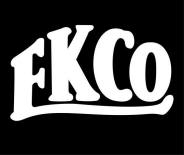 |
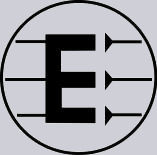 |
|
Early
Ekco logo |
Later Ekco logo |
| The company's founder Eric Kirkham
Cole was born on the 4th of July, 1901.
He started building two-valve radios in 1924. In 1926, Ekco,
Eric Kirkham Cole Limited, was founded. Together with
co-founder William Streatfield Varrells, they started
making battery eliminators. The first products we made
at a number of locations in London. When enough money
was raised they moved to a new
factory in Leigh-on-Sea in 1927; later, in 1930, Ekco
moved to a bigger factory in Southend-on-Sea. |
|
Soon branches were created in Belgium (Haren, near
Brussels) and in Australia. In the beginning of the 1930s Ekco
started the production of thermionic valves but in 1938
production stopped and the unit was sold to Mullard. |
|
Ekco is well known for its
often stunning designs, inspired by Modernism and Art Deco. Ekco choose
Bakelite, where other brands choose wooden
cabinets. In order to
win the public for Bakelite, that used to have a cheap image,
the choice was made to use designs of well known designers like
J.K. White, Misha Black, Serge Chermayeff, Jesse Collins and Canadian Wells Coates. |
|
Bakelite allowed a variety of new
modernist shapes, that could not be made in
wood. Models were often made in more then one
colour.
|
|
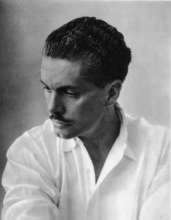 |
|
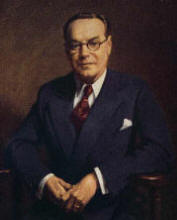 |
|
Wells Coates |
|
Eric Kirkham Cole |
| The first
Bakelite
cabinets were made for Ekco by AEG in Germany. In 1931 Ekco had finished its own Bakelite moulding shop,
next to the factory in Southend-on-Sea.
In early 1932, a fire destroyed the designs for
the 1932/1933 season and the models produced in
1932 were therefore built in the same cabinets
as those of the previous season for a while. |
|
|
Just before the war, in 1939,
the factory was moved again to a number of different locations,
among them Malmesbury, because of
a government decision to move production sites to the
country-side in order to minimize the risk of bombing. |
|
The new factory was situated near the river Avon, just
outside Malmesbury
on the grounds of a country house. Like everywhere in
England, from that moment on women were recruited for production
work. During the war, production was
mainly focussed on military radio and radar systems and the
production of plastic practice bombs. After the war the factory
became a producer of television and
later car radio sets. Ekco bought the
Ferranti brand and Dynatron business. By 1973 Ekco had been
absorbed into a conglomerate and its
products were mostly rebadged Pyes.
Later the Ekco name disappeared
completely. |
|
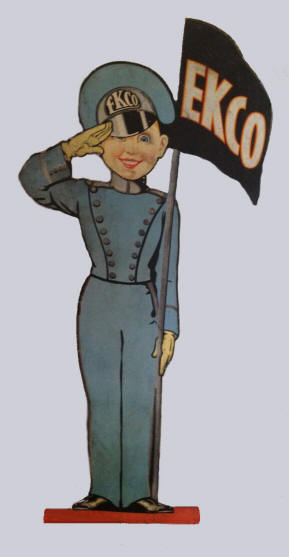 |
|
Shop display circa 1935 |
|